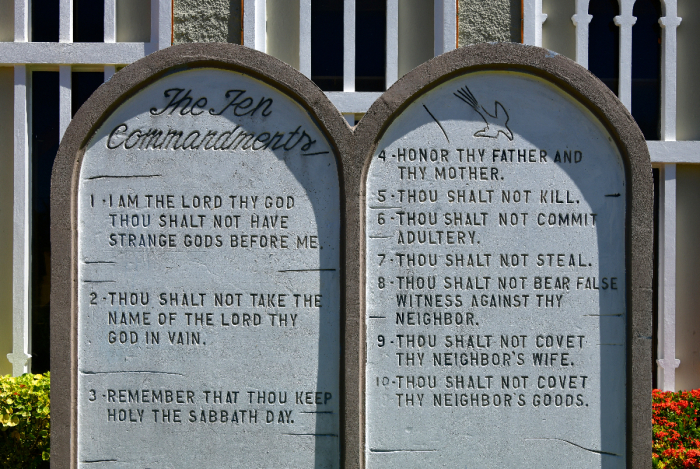South Dakota may require Louisiana-style Ten Commandments display in public schools

South Dakota lawmakers have introduced a bill that would require public schools to display a copy of the Ten Commandments in classrooms, comparable to a measure passed in Louisiana that is being legally challenged.
Senate Bill 51, which was introduced last week and primarily sponsored by Sen. John Carley and Rep. Phil Jensen, would mandate the display of the Decalogue in public schools.
“The board of a school district shall display the Ten Commandments in each classroom in each school located within the district. The display must be a poster or document that is at least eight inches by fourteen inches,” reads the bill.
“The text of the Ten Commandments must be the focus of the poster or document and must be printed in large, easily readable font.”
Additionally, the legislation requires that a statement describing the historical significance of the Ten Commandments be included and that a display can also include other notable documents, such as the Mayflower Compact and the Declaration of Independence.
“We need to illustrate our history and truth, some people may want to say, ‘We don’t want to talk about these topics,' but the Ten Commandments certainly were a part of the founding of our country,” said Carley, as quoted by Dakota News Now.
“If we find kids honoring their father and mother, a lot of parents will be happy about that. If we find people are not stealing, lying or murdering, I think our Sheriff Department and law enforcement will certainly be happy.”
Critics of the legislation include the South Dakota chapter of the American Civil Liberties Union, which they believe the bill, if enacted, “will cause students who don’t follow the state’s approved religious dictates to feel ostracized from their school community.”
“The First Amendment guarantees families and faith communities — not politicians or the government — the right to instill religious beliefs in their children. Displaying the Ten Commandments in our state’s classrooms blatantly violates this promise,” stated the ACLU of South Dakota.
“Students already have the right to engage in religious exercise and expression at school under current law. Students may, for example, voluntarily pray, read religious literature or engage in other religious activities during recess or lunch.”
The ACLU chapter also cited the 1980 U.S. Supreme Court decision Stone v. Graham, in which the high court ruled 5-4 that a Kentucky law requiring schools to display the Ten Commandments violated the U.S. Constitution.
Last June, Louisiana Gov. Jeff Landry signed a bill that required public school classrooms to display "certain historical documents," including the Ten Commandments, the Mayflower Compact, the Declaration of Independence and the Northwest Ordinance.
A group of progressive organizations filed a complaint against the new law on behalf of an interfaith collection of parents, arguing that the measure was unconstitutional.
In November, U.S. District Judge John W. deGravelles, an Obama appointee, issued a lengthy ruling and order, temporarily blocking enforcement of the law while the litigation continued.
"Plaintiffs have established a viable Free Exercise claim," wrote deGravelles. "H.B. 71 is not neutral toward religion, and this is evident from the text of the statute, its effects, and the statements of lawmakers before and after the Act's passage."
However, later that month, a three-judge panel of the U.S. Court of Appeals for the 5th Circuit issued an order allowing the law to take effect in the school districts that did not have parents challenging the legislation.





























